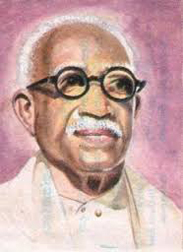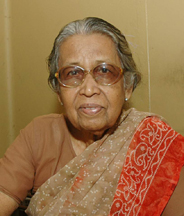
CWW Kannangara and what the country owes him
The people of our country owe CWW Kannangara a deep debt of gratitude
for having given us free education and thereby laid the foundation to
change the social, political and economic history of our country. Who
was CWW Kannangara?
I am quite surprised that even many men and women over fifty, born
and bred in our country, do not know what CWW Kannangara achieved for
our country; hence I thought it would be of value to write even a short
article on the tremendous contribution he made through his life to
transform this country, to what it is today. He has been an inspiration
to us all.
Baptized
CWW hailed from a little known village in the south, his father had
been a Buddhist whereas his mother, who had been from Hikkaduwa, was a
Christian, and hence it was that he had been baptized Christopher
William! (Wijekoon Kannangara was the family name) and was how he became
“CWW Kannangara! Incidentally, his father had been a Sinhala poet.
 CWW
had been first sent to a Wesleyan school where he had not only been
first in class every year but also won most of the prizes; at the annual
school prizegiving, at which the Chief Guest had been the Principal of
Richmond Galle, Fr Darrel Stone who had been very impressed with CWW’s
performance, invited him to do the scholarship examination to enter
Richmond College, Galle, which he did and qualified. CWW
had been first sent to a Wesleyan school where he had not only been
first in class every year but also won most of the prizes; at the annual
school prizegiving, at which the Chief Guest had been the Principal of
Richmond Galle, Fr Darrel Stone who had been very impressed with CWW’s
performance, invited him to do the scholarship examination to enter
Richmond College, Galle, which he did and qualified.
Being from a relatively poor village family he had been subject to
much teasing and ragging by children of richer families at Richmond,
this ‘treatment’ had made him determined to succeed; at Richmond too he
had been first in class every year; his crowning achievement had been
that he had come first in the whole island in the Cambridge Senior
Examination.
After that his first job had been as an assistant teacher, and it
would be of interest to know that his salary had been the princely sum
of Rs 25 a month! From there he had moved on to teach at Prince 0f Wales
and from there to Wesley College, while at the same time studying Law
and had taken his oaths as a lawyer in 1910.
From then on he went into politics, from Galle; he first contested
the Galle seat in the Legislative Council in 1923; in 1931 he was
elected to the State Council as Member for Galle under the Donoughmore
Constitution, he was then appointed Chairman of the Education Executive
Committee, with the title of Minister of Education.
This is where his own personal life experience came into play; he
always felt strongly for the poor but clever students in the villages of
our country and he sought to establish scholarship schemes for children
of rural schools. He had been of the opinion that it was only the rich
and influential minority of our population that had the opportunity of
going ahead in life.
New schools
As Minister of Education he had taken steps to start new schools in
areas where there were no schools, and also had the school curricular
diversified and had other facilities provided to the schools.
It was he that had established Central Schools in 1943, even with
hostel facilities. It is also said that it was he that introduced the
University system by establishing the ‘University College of Ceylon’
affiliated to the University of London.
It is said that it was in his time that it had been decided to
establish a University at Peradeniya. Most important of all in his
career was his taking the initiative to introduce Free Education in our
country.
It was he who introduced the Free Education Bill in the State Council
in 1945; there were many in the State Council and the country (the rich
and privileged) who were opposed to the concept of free education for
the masses, but he managed to steer it through and make it law.
This Bill changed our nation, which is today the most literate in
South Asia. Let us build statues of him in every provincial capital not
only to venerate him but also to inspire our future generations.
Sumana Saparamadu, ‘You were just great while you lived’
I last met Sumana, almost inevitably in the bund around Lake House.
We had no time for a chat, for it was closing on evening tide and her
style of walking and mine did not match. In fact, she told me that she
was hurrying to Katana.
“Katana?” I exclaimed as if it was at the other end of the universe.
“Yes. I am doing an English class for children of non-affluent families
there”.
 That
explained it tersely but our initial meeting was more adventurous and
media-worthy. I was then heading a Women’s Teachers’ Training College by
the Mahaweli. That
explained it tersely but our initial meeting was more adventurous and
media-worthy. I was then heading a Women’s Teachers’ Training College by
the Mahaweli.
Wept
In1982, mostly due to the initiative of Dr. Uvais Ahamad, then
director of teacher education, I attended a women and media conference
in Malaysia and lent ear to many sob stories. Most of the female
speakers were sobbing over the trials and tribulations the Asiatic woman
undergoes in smoke-filled kitchens. The audience too wept maybe
including me. I returned and got immersed in daily official and
household chores.
It was while going through the bills that my housemaid Leela (alas,
herself now no more like Sumana) almost invaded me and invited me to
watch flowers blossoming in the kitchen. She could be mad, yet I
followed her to the hearth where in a clay plot stands, sweet pink
flowers opened out to form a vivid tray of flowers. Here was no weeping
but simply a labour of love for the masters, a rose pink polos curry. I
did a piece on it, titled it ‘Creativity midst kitchen smoke,’ and sent
it to the Women’s page of the Sunday Observer.
In a week I received a letter from Sumana, then editor of Tharunee
(First and longest editor, who invested her life on this journal,
injecting fresh blood into a dry publication I titled my article,
Dumrotu asse mal pipila’.
Here, the Asiatic woman was not sobbing in the kitchen but laughing.
My friendship with Sumana grew after this.
Chief guest
Later, I invited her as the chief guest for a food exhibition that
showcased food produced by teacher trainees from indigenous products as
waraka syrup and kesel achcharu. I offered vehicle facilities to her in
my capacity as head of a teacher training college, but there was the
typical Sumana coming down by the Podi Menike in the aftermath of a
breezy train ride from the capital.
Dear Sumana, your single breezy life too is over.
You were just great while you lived, highly principled, never
courting accolades, forgetting loud academic titles as head of the
Sinhala branch at the Peradeniya University and warden of Sanghamitta
Hall, always comfortable with the common crowd. Perhaps today, you shine
again wherever you are.
Hoping to follow you soon and enjoy your simple but aesthetically
fabulous company.
Your dearest friend,
Padma Edirisinghe
|

